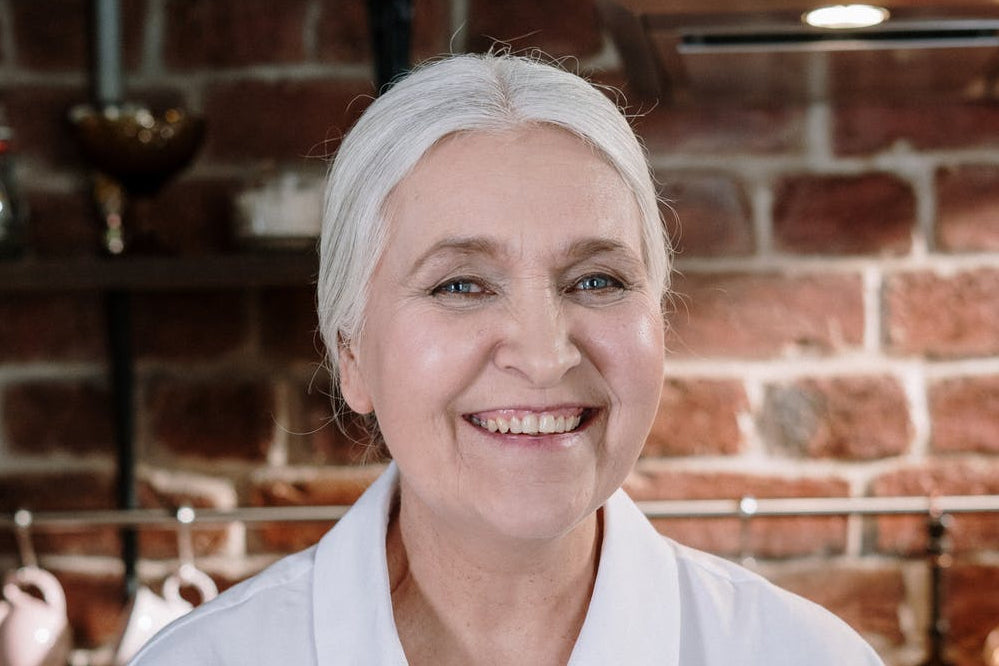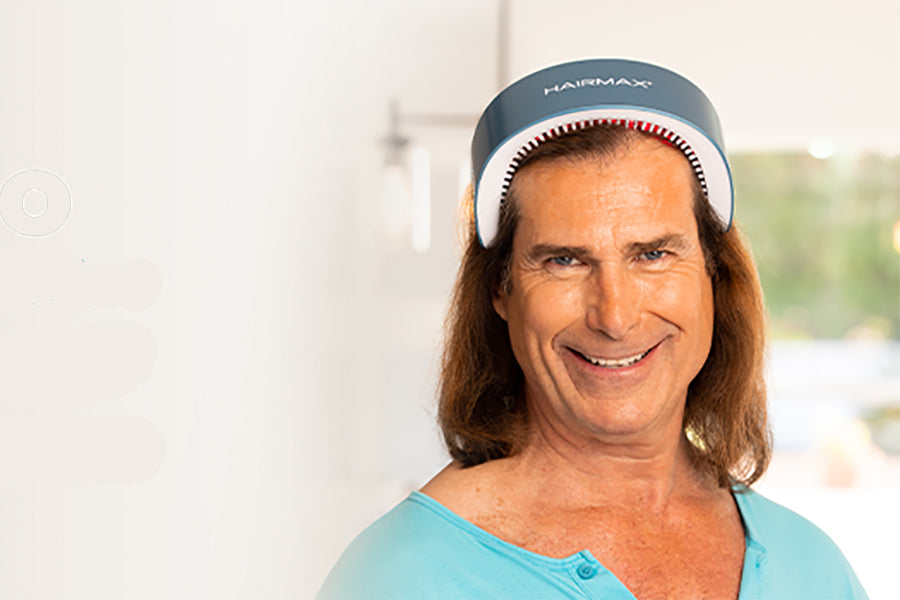Most of us can recall the moment we saw our first grey (and if you haven’t gotten one yet, it’s coming, don’t worry), but there are numerous other changes in the physiology of your hair that happen with age.
Aging is inevitable, with it comes physical changes — wrinkled skin, weaker bones, and greying hair. The latter being the one of the earliest to manifest in life. However, greying isn’t the only thing that happens to hair as you age, your mane goes through a whole (gradual) aging process.
While women can see early signs of hair aging in their 30s (grey is normally the first sign and can start well before the others), it is typically in the 40s when the signs become noticeable. By the late 40s and early 50s, we are seeing multiple signs which change hair’s fundamental needs. And although changes in your hair can occur due to endocrine disorders, thyroid issues, and the environment, there are a few signs that are universal to the aging process - Here are some of the hair changes you may notice over the years:
Greying Hair
The change in hair colour is the most obvious of all hair changes as you get older. While some people go grey prematurely for several reasons — including stress and unhealthy living — the usual culprit is the lack of melanin production. As you age, the pigment cells in the hair follicles die. With fewer cells, the strands can contain less melanin which leaves hair looking more transparent, aka grey. It takes a lot of energy to produce hair and even more to produce pigmented hair fibers. Our bodies prioritize other systems over this as energy becomes more limited. So in other words, your hair colour has to be sacrificed in order to keep your aging body functioning properly.
Thinning Hair and Hair Loss
Thinning hair is a common concern as you age. The rate of hair growth also slows. How much hair you have on your body and head is determined by your genes. Hair is made of many protein strands. A single hair has a normal life between 2 and 7 years, that hair strand then falls out and is replaced with a new one. Over time, hair becomes finer, thinner and grows more slowly. So, the thick, coarse hair of a young adult eventually becomes thin, fine, light-colored hair. Some hair follicles can stop producing new hairs altogether.
Men may start showing signs of hair loss by the time they are 30 years old. Many men are nearly bald by age 60. The type of baldness related to the male hormone testosterone is called male pattern hair loss. Hair loss may be at the temples or at the top of the head. In Women, the hair becomes thinner overall, the parting may widen, and the temple areas can recede. Hair becomes less dense and the scalp may become visible.
Generally hair amount peaks around age 35 (on average). By age 45, the relative scalp coverage is 5 percent less than the maximum, and by age 50, scalp coverage is 11 percent less than the maximum.
Hair breakage
Aside from colour, the loss of protein in the hair also makes it more fragile. As it grows weaker, hair becomes brittle and less elastic. This leads to breakage when it is pulled instead of it bouncing back. The outer protective cuticle of hair strands also suffers over time, which makes hair break faster. Too much bleaching, dye, and straighteners also makes hair dry and more prone to breakage.
Dryness
Teenage years may have been marked by excessive oil production, in your hair as well as your complexion, but the hormonal changes you’ll experience in your 40s and beyond will also lead to changes in your scalp’s sebaceous glands. Hair follicles produce less oil for our scalp and hair as we age. With slower sebum production, hair is more likely to feel dry, and it can seem even more flyaway without the natural oils to keep it smooth. Using products that impart enough moisture for your hair and scalp are essential once you reach this point in your life.
How to keep your hair healthy
Laser treatments help keep hair healthier and growing stronger. The leader in laser hair growth technology is HairMax. Their clinically proven laser devices combat hair loss thinning and actually stimulates the hair follicle to regrow hair. The earlier you start using HairMax, the better. If left untreated, hair follicles can die over time and then they will no longer be able to grow hair. Thanks to Science, your hair doesn’t have to age with you.
www.hairmax.co.uk
☎️ 01625 533588 our friendly customer service team
#hairmax #hairscience #malehairloss #femalehairloss #hairgrowth #hairlosstreatment

How Hair Changes as We Age
- by Stephen Dowd


Share:
Model & Actor Fabio - The New Global HairMax Spokesperson
Top 10 Ways To Get Thick, Healthy Hair